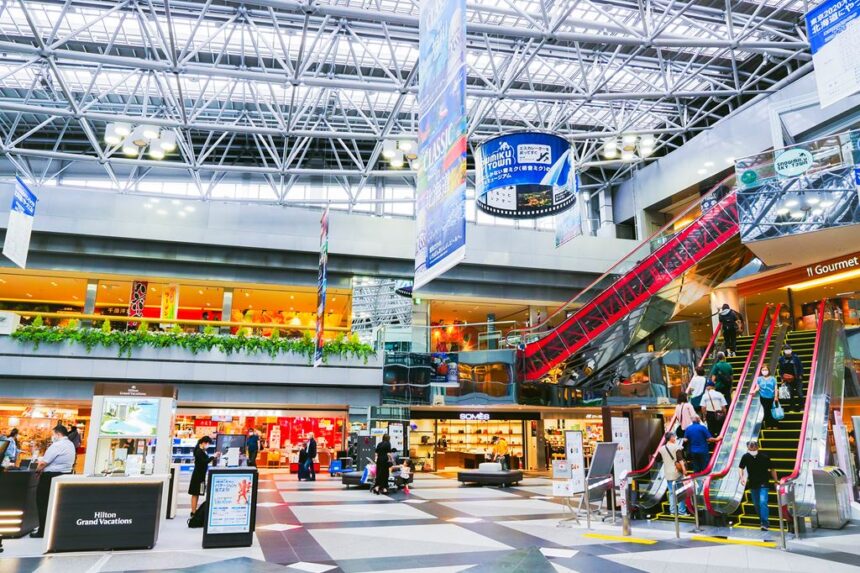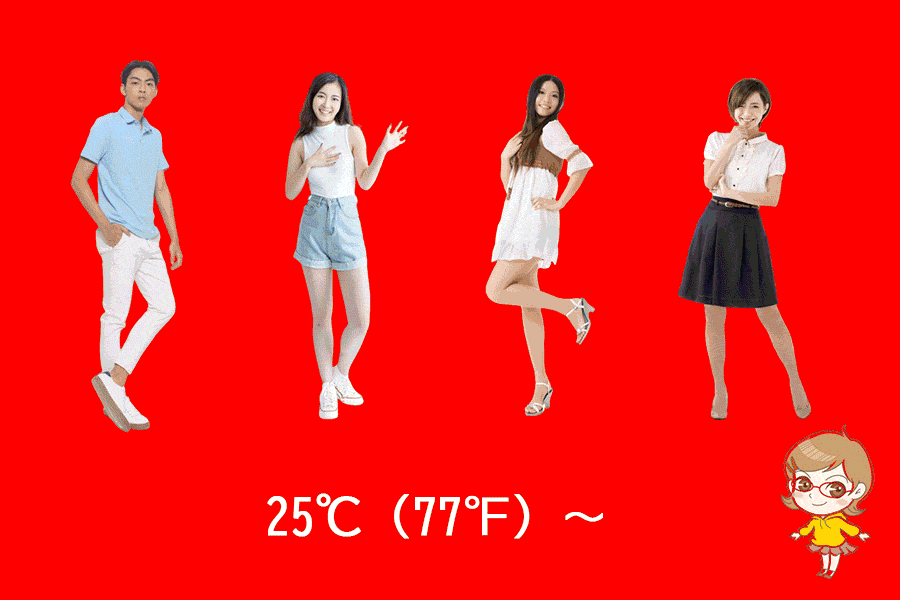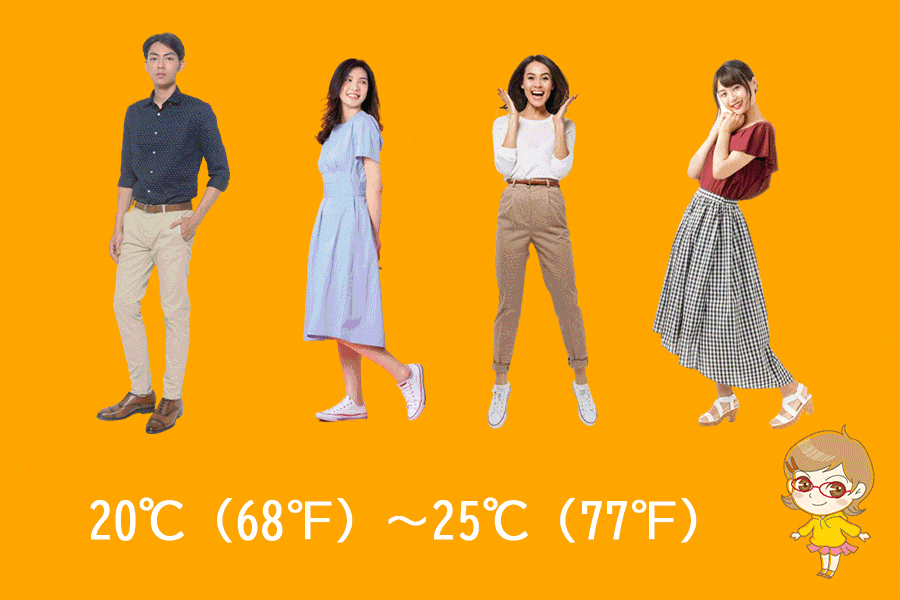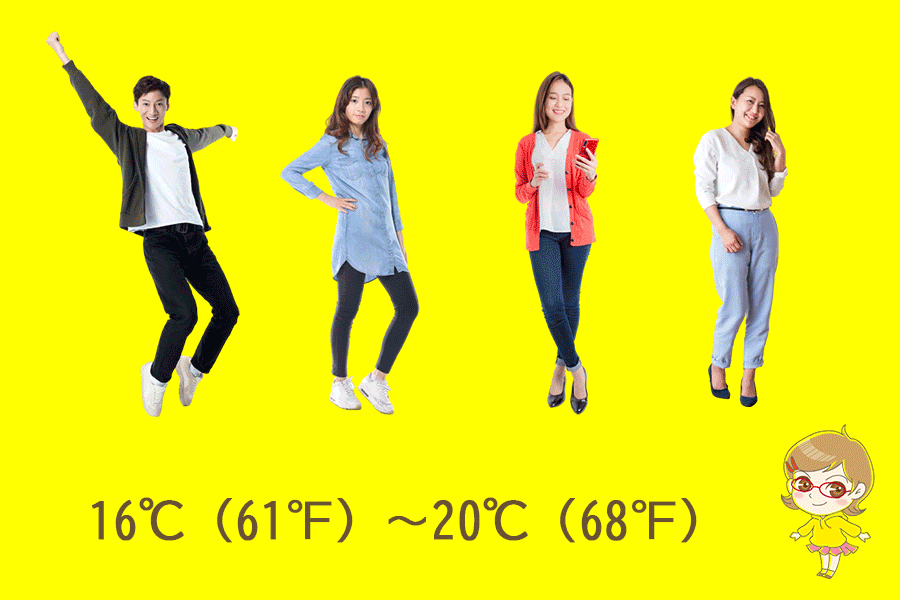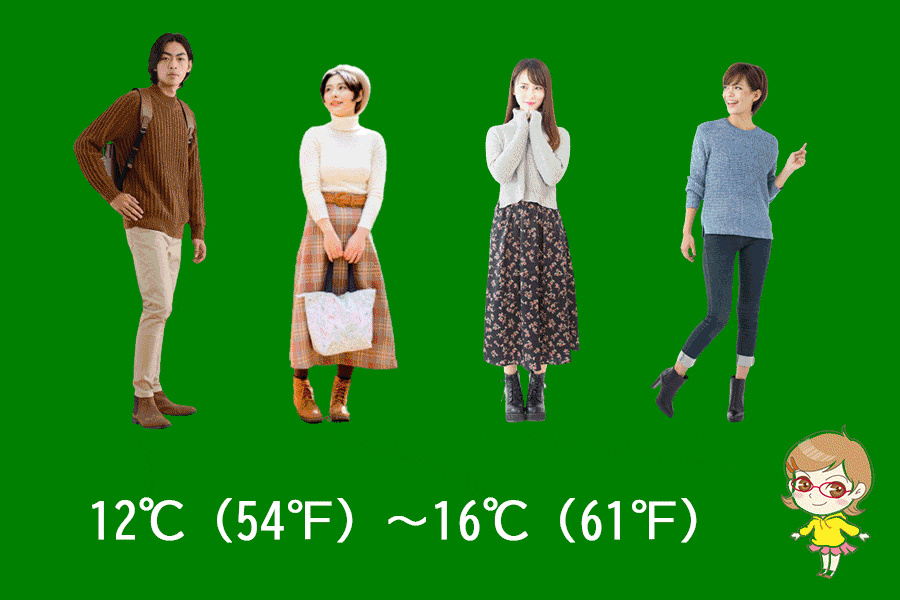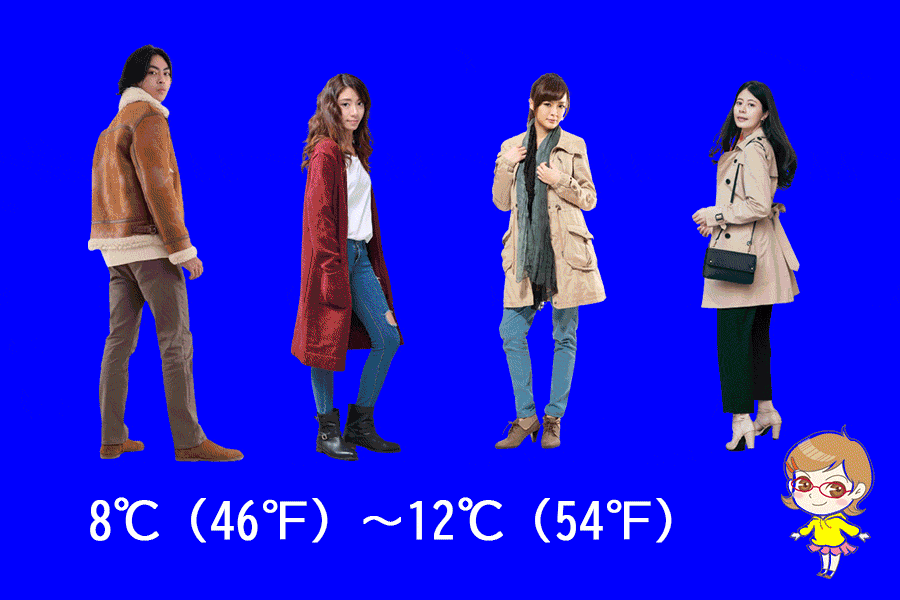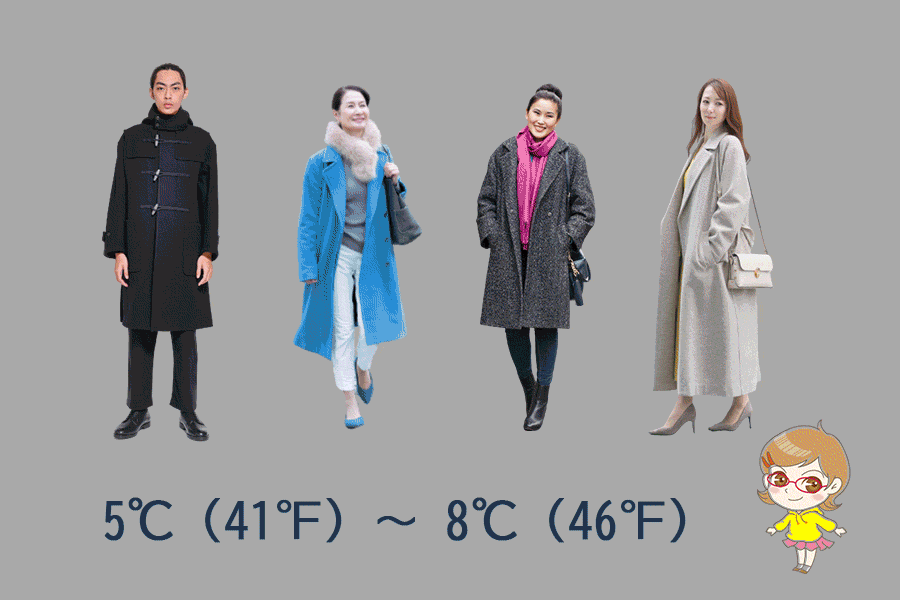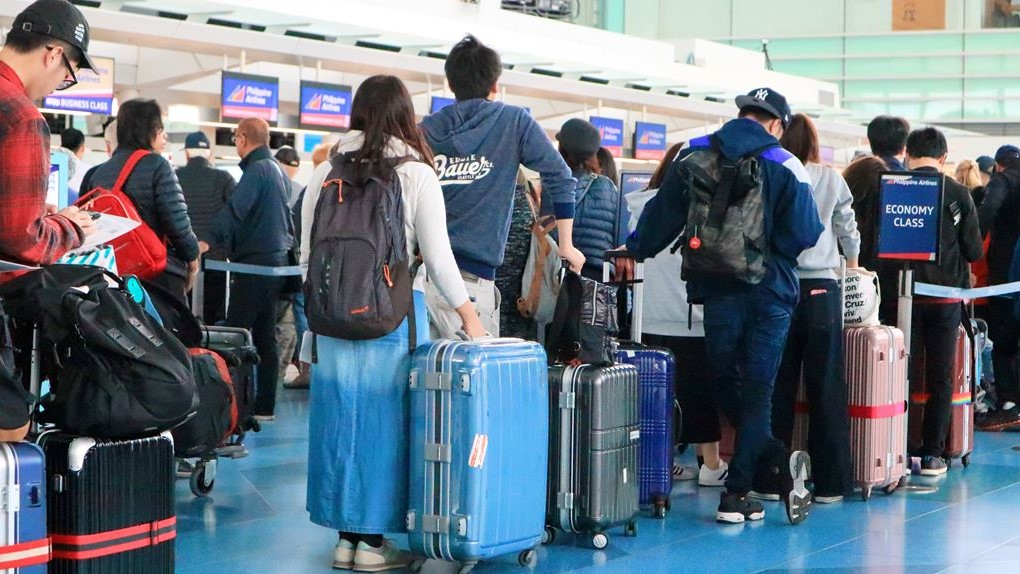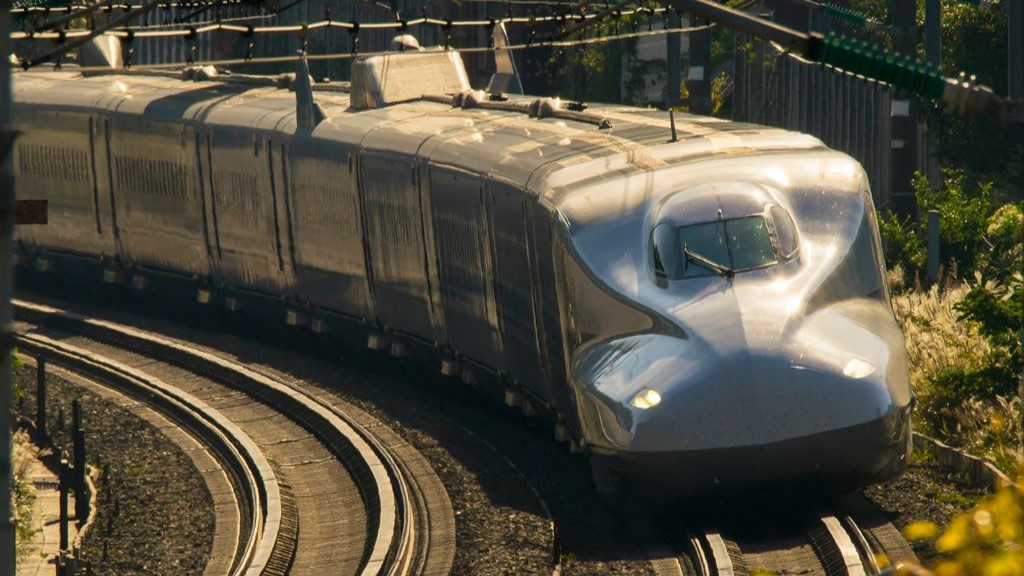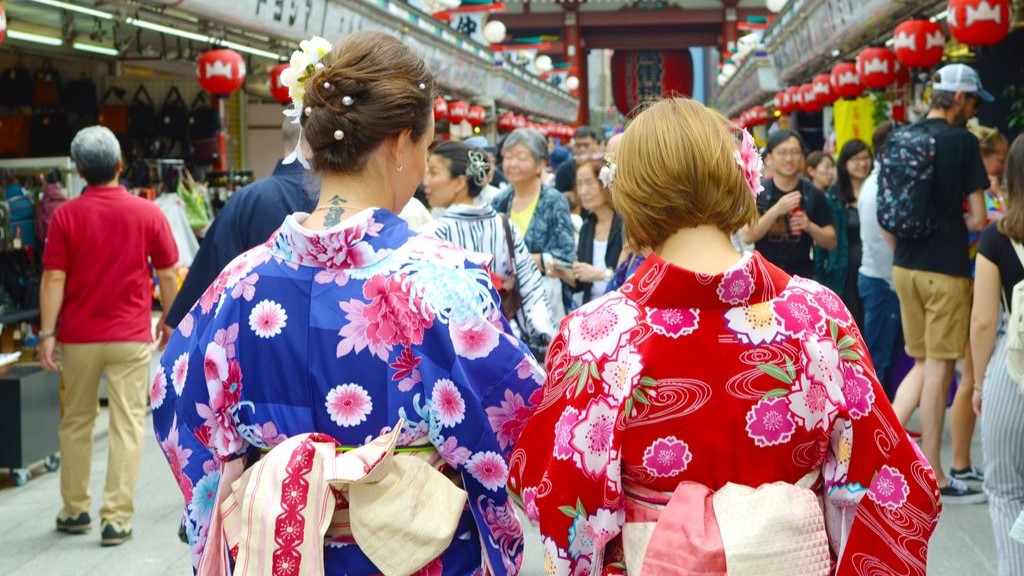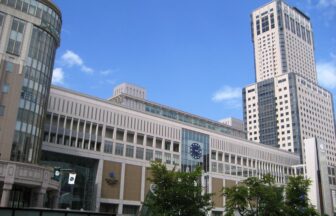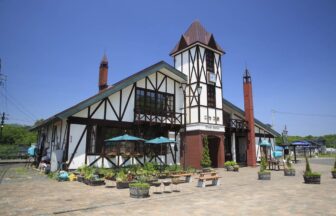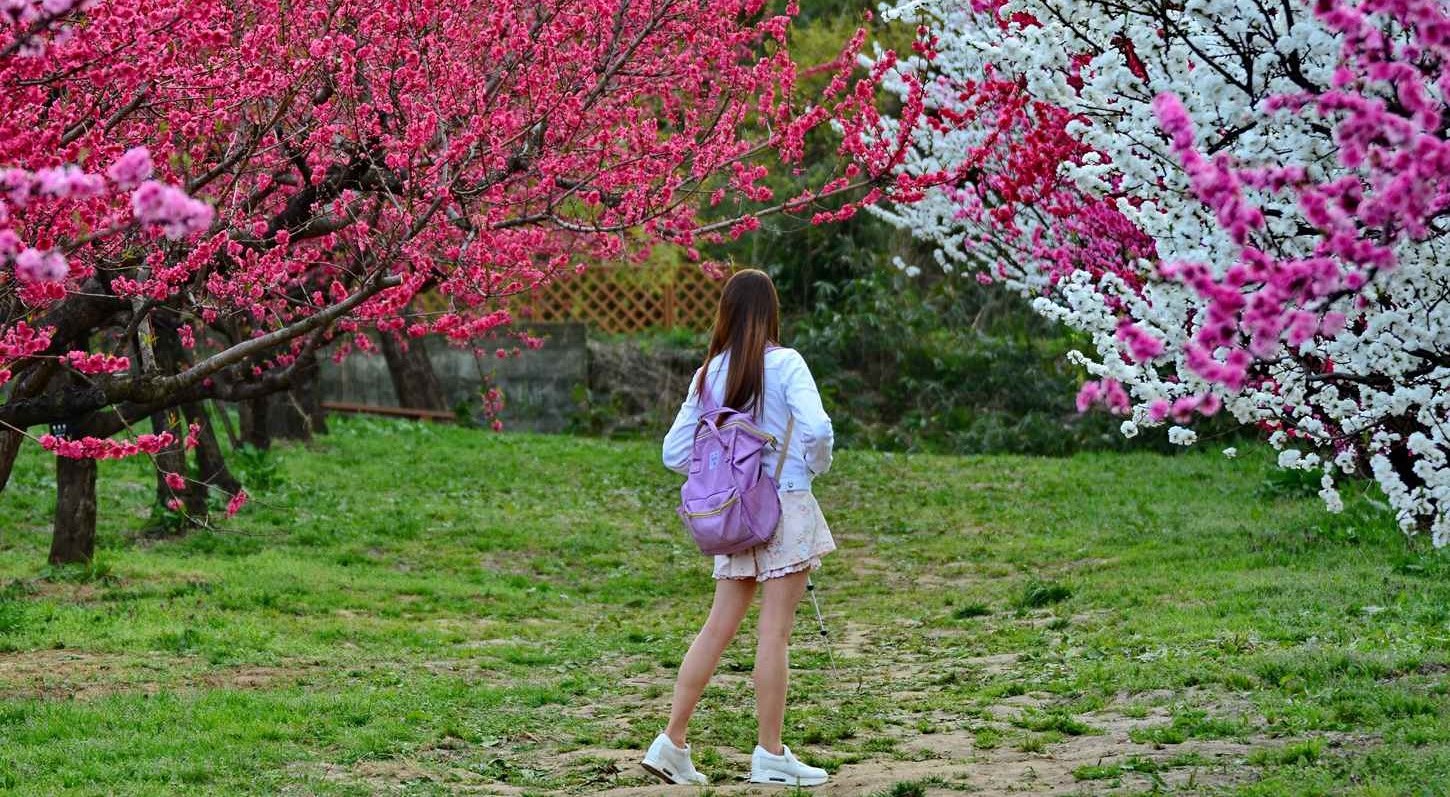Address: Bibi, Chitose, Hokkaido 066-0012 MAP
↓ Click to jump to the relevant section.
| Current Weather | Annual Weather | Tourist Attractions |
| Baggage Deposit | Hotels |
Current weather and clothing

The weather information shown here is the information closest to the station in question. Please note that there may be slight differences.
Yearly temperature changes and recommended clothing
Clothing recommendations for each temperature range
When traveling in Japan with the following average temperatures, the recommended clothing is as follows:
Monthly changes in temperature, precipitation, and snowfall (1991~2020 average, Japan Meteorological Agency survey)
| Jan. | Feb. | Mar. | Apr. | May | Jun. | Jul. | Aug. | Sep. | Oct. | Nov. | Dec. | |
| temperature(°C) | -6.1 | -5.3 | -0.3 | 5.5 | 11.1 | 15.1 | 18.8 | 20.9 | 17.4 | 10.4 | 3.9 | -3.0 |
| precipitation(mm) | 25.6 | 30.1 | 45.8 | 66.8 | 89.0 | 95.7 | 113.2 | 155.2 | 140.5 | 93.4 | 80.3 | 49.0 |
| snowfall(cm) | 63 | 64 | 42 | 3 | 0 | 0 | 0 | 0 | 0 | 0 | 10 | 44 |
Winter
November
The weather in the New Chitose Airport area during November is typically characterized by an average temperature of 3.9 and moderate precipitation levels. There may be occasional snowfall, but it is usually not significant. It is recommended for tourists visiting from overseas to wear warm layers and bring a coat or jacket, as well as waterproof gear for the possibility of rain. If there is snow, it is advisable to wear boots and bring other cold weather gear.
December
The average temperature in New Chitose Airport area in December is -3.0°C. December usually has a low amount of precipitation, but there is a chance of snowfall in the region. It is recommended to wear warm clothing such as a coat, hat, gloves, and waterproof shoes to prepare for the cold weather and potential snow. Additionally, layering is recommended so that you can adjust your clothing as needed throughout the day.
January
In January, the New Chitose Airport area experiences a cold climate with an average temperature of -6.1°C. Precipitation is low, with an average of 25.6mm. Snowfall is common, with an average of 63cm. Visitors from overseas should wear warm clothing such as coats, hats, gloves, and waterproof shoes to protect themselves from the cold and snow. It is advisable to bring layers as temperatures can fluctuate.
February
February in the New Chitose Airport area is similar to January, with an average temperature of -5.3°C and low precipitation of 30.1mm. Snowfall is still significant, with an average of 64cm. Visitors from overseas should continue to wear warm clothing, including waterproof gear if possible, as well as sturdy shoes for navigating the snowy terrain. Layers are also recommended as temperatures can fluctuate.
March
March in the New Chitose Airport area marks the beginning of spring, with temperatures rising to an average of -0.3°C. Precipitation also increases, with an average of 45.8mm. Snowfall decreases to an average of 42cm. Visitors from overseas should bring warm clothing, but also lighter layers as temperatures may become more mild. A waterproof jacket and sturdy shoes are still recommended for possible rain and snow.
Spring
April
April in the New Chitose Airport area is the start of a warm and rainy spring, with temperatures averaging 5.5°C and precipitation averaging 66.8mm. Snowfall is rare with an average of only a few centimeters. Visitors from overseas should bring a waterproof jacket and comfortable shoes as rain is common, and temperatures can still be cool in the early mornings and evenings. Lighter layers and a hat or umbrella are also recommended.
May
The weather in the New Chitose Airport area in May is characterized by mild temperatures with an average temperature of 11.1°C. Precipitation levels are moderate, with an average of 89.0mm of rain. For tourists visiting from abroad, it is recommended to bring light jackets or layers, as well as rain gear in case of unexpected showers. May is a great time to explore the area as the weather is comfortable and the beautiful spring flowers are in full bloom.
June
The weather in the New Chitose Airport area during June is typically mild with average temperature 15.1°C. Precipitation is moderate with average rainfall of approximately 95.7mm in June. Visitors from overseas should bring light jackets or sweaters for cooler evenings and umbrella in case of rain. Light summer clothing, such as t-shirts and shorts, are recommended for the day time.
Summer
July
The weather in the New Chitose Airport area in July is characterized by an average temperature of 18.8°C and relatively high rainfall. It is advisable to bring light and comfortable clothing such as cotton t-shirts, shorts and sandals, as well as an umbrella or rain jacket to deal with the occasional rain.
August
The average temperature in the New Chitose Airport area during August is around 22°C, with relatively high humidity levels. The rainfall amount during this month is low, but occasional showers can be expected. It is recommended for tourists visiting from abroad to wear light, breathable clothing and to bring an umbrella in case of rain.
Autumn
September
The weather in the New Chitose Airport area during September is typically warm with some rain. The average temperature is 17.4°C and the average rainfall is 140.5mm. It is advisable for tourists from overseas to be aware of typhoons, which can occur during this time of year. It is recommended to bring lightweight and breathable clothing, a rain jacket, and comfortable walking shoes.
October
The weather in the New Chitose airport area during October is characterized by cool temperatures with a average temperature of 10.4. Precipitation is moderate, with an average of 93.4 of rainfall throughout the month. Visitors from overseas are advised to pack light layers, such as a long-sleeved shirt and a light jacket, as well as an umbrella or raincoat.
Recommended tourist destinations
Lake Shikotsu
A beautiful lake representing Hokkaido.The area around the lake is a national park where you can enjoy walking and boating. There is also a hot spring. Renting a car is convenient from New Chitose Airport.
Royce’ Chocolate World
New Chitose Airport, Bibi, Chitose 066-0012 Hokkaido
A small museum specializing in chocolate located in New Chitose Airport.
Salmon Hometown Chitose Aquarium
2-312 Hanazono, Chitose 066-0028 Hokkaido
Hokkaido’s rivers are home to many salmon. This museum is dedicated to salmon, and visitors can learn about the nature of Hokkaido.
New Chitose Airport Observation Deck
Bibi Domestic Terminal Building 4F, Chitose 066-0012 Hokkaido
You can watch airplanes arriving and departing from the airport.
Chitose Outlet Mall Rera
1-2-1 Kashiwadaiminami, Chitose 066-8765 Hokkaido
An outlet mall near the airport. 140 brand-name stores are concentrated here.
Where to leave your luggage
New Chitose Airport has baggage storage facilities, including coin-operated lockers and a baggage deposit counter. The baggage deposit counter is located in the airport terminal and its operating hours may vary.
Temporary Baggage Storage
Small 310 yen / Medium 530 yen / Large 840 yen
Domestic Terminal Building: 1F=7:00-20:00, 2F=7:30-20:00
International Terminal Building: 2F=[Monday,Tuesday,Thursday,Saturday]7:30-19:00 [Wednesday,Friday,Sunday]7:30-20:00, 3F=Open in accordance with departing flights.
Opening hours may change, so please refer to the official New Chitose Airport website for details.
Coin-operated lockers
Coin-operated lockers are available in several locations throughout the airport terminal, including near the arrivals lobby and the departure gates.
Recommended hotels and inns
Portom International Hokkaido
Bibi New Chitose Airport International Passenger Terminal Bldg. 4 to 8F, Chitose 066-0012 Hokkaido
0 mi/ 0 km from New Chitose Airport
Hoetl class: New
Hotel style: Mid-range, Business
Check Rates & Availability:
>> See on Tripadvisor
>> See on Trip.com
>> See on Expedia
Best Western Plus Hotel Fino Chitose
3-13 Chiyodacho, Chitose 066-0062 Hokkaido
3.1 miles/ 5.0km from New Chitose Airport
Hoetl class: 3
Hotel style: Modern, Business
Check Rates & Availability:
>> See on Tripadvisor
>> See on Trip.com
>> See on Expedia
JR Inn Chitose
6-4-4 Suehiro, Chitose 066-0027 Hokkaido
3.1 miles/ 5.0km from New Chitose Airport
Hoetl class: 3
Hotel style: Business
Check Rates & Availability:
>> See on Tripadvisor
>> See on Trip.com
>> See on Expedia
Air Terminal Hotel
Bibi | Shin-chitose Airport Terminal Building, Chitose
066-0012, Hokkaido
3 mi/ 4,8km from New Chitose Airport
Hoetl class: 3
Hotel style: Mid-range, Business
Check Rates & Availability:
>> See on Tripadvisor
>> See on Trip.com
>> See on Expedia
Queen’s Hotel Chitose
5-6-1 Saiwaicho, Chitose 066-0063 Hokkaido
0.2 miles/ 0.3 km from New Chitose Airport
Hoetl class: 3
Hotel style: Business
Check Rates & Availability:
>> See on Tripadvisor
>> See on Trip.com
>> See on Expedia
ANA Crowne Plaza Chitose, an IHG hotel
2-2-1 Hokuei, Chitose 066-8637 Hokkaido
3.4 miles/ 5.5 km from New Chitose Airport
Hoetl class: 4
Hotel style: Modern, Mid-range
Check Rates & Availability:
>> See on Tripadvisor
>> See on Trip.com
>> See on Expedia
New Chitose Airport Terminal Yasumidokoro
987-22 Bibi Chitose 4F New Chitose Airport Terminal Building, Chitose 066-0012 Hokkaido
0.2 miles/ 0.3 km from New Chitose Airport
Hoetl class: 3
Hotel style: Mid-range, Business
Check Rates & Availability:
>> See on Tripadvisor
We support your itinerary planning!
Click the button to get an overview of hotel information and popular tourist routes from all over Japan featured on our site. We’ve included comprehensive details to aid in planning your trip, so please make use of it.
Comprehensive checklist before traveling to Japan
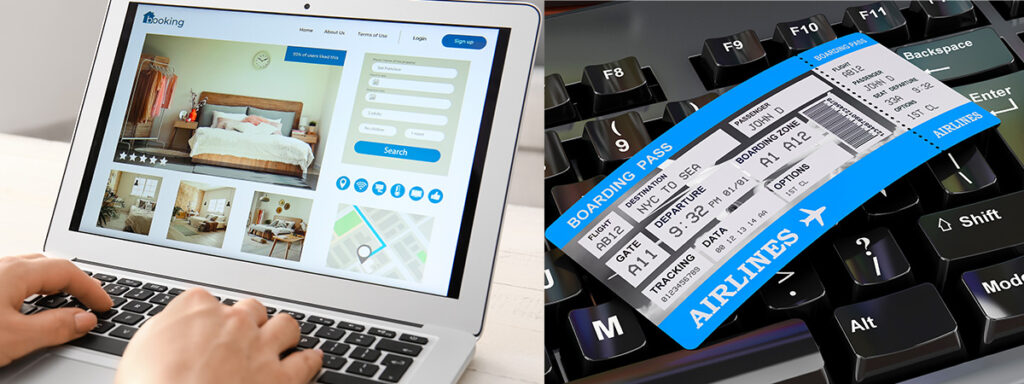
Book flights
Compare and purchase flight tickets
When planning your trip to Japan, it's advisable to start by researching flights several months in advance. Airlines often release promotional fares, especially during off-peak seasons. Use comparison sites like Skyscanner or KAYAK to get a sense of the price range. Be flexible with your travel dates if possible; flying mid-week might be cheaper than on weekends.
>> Visit Skyscanner's official website
>> Visit KAYAK's official website
Order Japan Rail Passes for each family member
Purchase your Japan Rail Pass before departure
The Japan Rail (JR) Pass offers unlimited travel on JR trains, making it a cost-effective option for tourists. However, it's only available to foreign tourists and must be purchased *before* you arrive in Japan. Determine the areas you plan to visit; if you're traveling extensively, a nationwide pass is beneficial, but if you're only exploring a specific region, consider regional JR passes. Children under 12 get a discounted pass, so ensure you order the correct type for each family member.
>>Visit Japan Rail Pass's website
Plan your attire for Japan
Check the weather at your destination on this site
Japanese weather varies significantly by season. In summer, it's hot and humid, so breathable clothes are essential. Winters, especially in the north, can be cold, requiring warm attire. If visiting during the rainy season (June to early July), pack a good umbrella and waterproof shoes. While Japan is generally casual, certain places like temples, shrines, or upscale restaurants may require modest and neat dressing.
Reserve a pocket Wi-Fi or SIM card
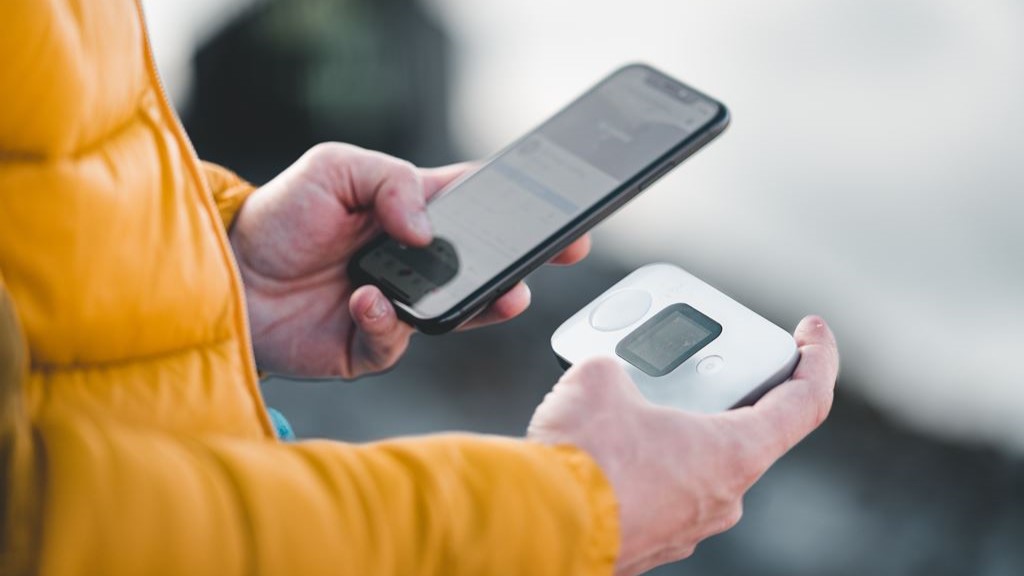
SIM card or pocket Wi-Fi is required
Beyond clothes, consider packing essentials like a universal power adapter (Japan uses Type A and B sockets), portable Wi-Fi or SIM card for internet access, and any necessary medications (with a copy of the prescription).
Which is better: a SIM card or pocket Wi-Fi?
When traveling in Japan, one essential to consider is securing internet access, especially given that many locations still don't offer free Wi-Fi. To ensure you can use your smartphone throughout your trip, you'll typically have three options: (1) a SIM card, (2) pocket Wi-Fi, or (3) the roaming service provided by your mobile company. Roaming services can be quite expensive, so we often recommend using a SIM card or pocket Wi-Fi. While SIM cards tend to be more affordable than pocket Wi-Fi, they can be trickier to set up. Pocket Wi-Fi, on the other hand, can be shared among several users, making it a favorable choice for families or groups.
▼SIM card
Advantages:
Relatively affordable.
Disadvantages:
Can be time-consuming to set up initially.
May have strict data limits.
▼Pocket Wi-Fi
Advantages:
Offers substantial data allowances.
A single device can be shared among multiple users.
Easily usable with PCs as well.
Disadvantages:
Typically more expensive.
Japan's representative services
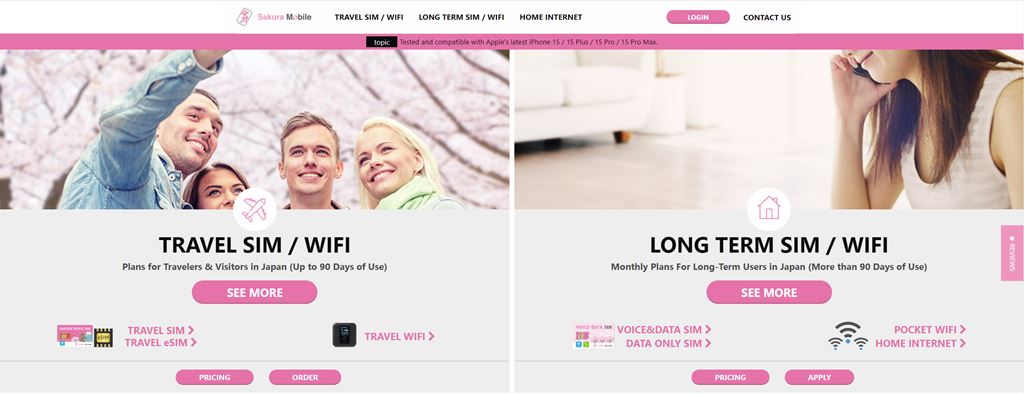
Sakura Mobile's website
▼SIM card
>>Visit Sakura Mobile's official website
>>Visit mobal's official website
▼pocket Wi-Fi
>>Visit Sakura Mobile's official website
>>Visit NINJA WiFi's official website
>>Visit Wi-Fi RENTAL Store's official website
Book local tours as needed
Pre-book your tour and have a great trip!
Local tours offer deep insights into Japan's culture and heritage. Websites like Viator or GetYourGuide offer a variety of tours, from traditional tea ceremonies to modern pop culture tours in Akihabara. Consider unique experiences like staying with monks on Mt. Koya or taking a cooking class to learn authentic Japanese dishes.
>>Visit Viator's official website
>>Visit GetYourGuide's official website
Purchase advance tickets for popular attractions
Make a reservation to avoid crowds
Attractions like Tokyo Disneyland, Universal Studios Japan, or the Studio Ghibli Museum often have long ticket queues. Buy tickets online in advance to save time. Some attractions also have timed entry, so check the specific time slots available and plan accordingly.
▼Tokyo Disney Resort
>>Visit Tokyo Disney Resort official website
>>Visit Viator's Tokyo Disneyland page
>>Visit Viator's Tokyo DisneySea page
>>Visit GetYourGuide's Tokyo Disneyland page
>>Visit GetYourGuide's Tokyo DisneySea page
▼Universal Studios Japan
>>Visit USJ official website
>>Visit Viator's USJ page
>>Visit GetYourGuide's USJ page
Buy travel insurance

insurance concept, health, life and travel insurance
It is important to be prepared for emergencies
While Japan is a safe country, travel insurance is crucial for unforeseen events like health emergencies, travel disruptions, or lost baggage. Ensure your policy covers medical expenses in Japan, as healthcare, though excellent, can be expensive.
Here we introduce online travel insurance services that are popular worldwide.
World Nomads: An online travel insurance service widely endorsed by travelers worldwide. They offer plans that cover adventurous activities and high-risk sports.
>>Visit World Nomads' official website
AIG Travel Guard: An insurance service available to travelers all over the world. They offer a wide range of options, including cancellation protection and emergency medical insurance.
>>Visit AIG Travel Guard's official website
Share your itinerary with emergency contacts
Organize your reservation information
Keep a digital and printed copy of your detailed itinerary, including hotel addresses, train schedules, and booked tours. Share this with a trusted family member or friend not traveling with you.

